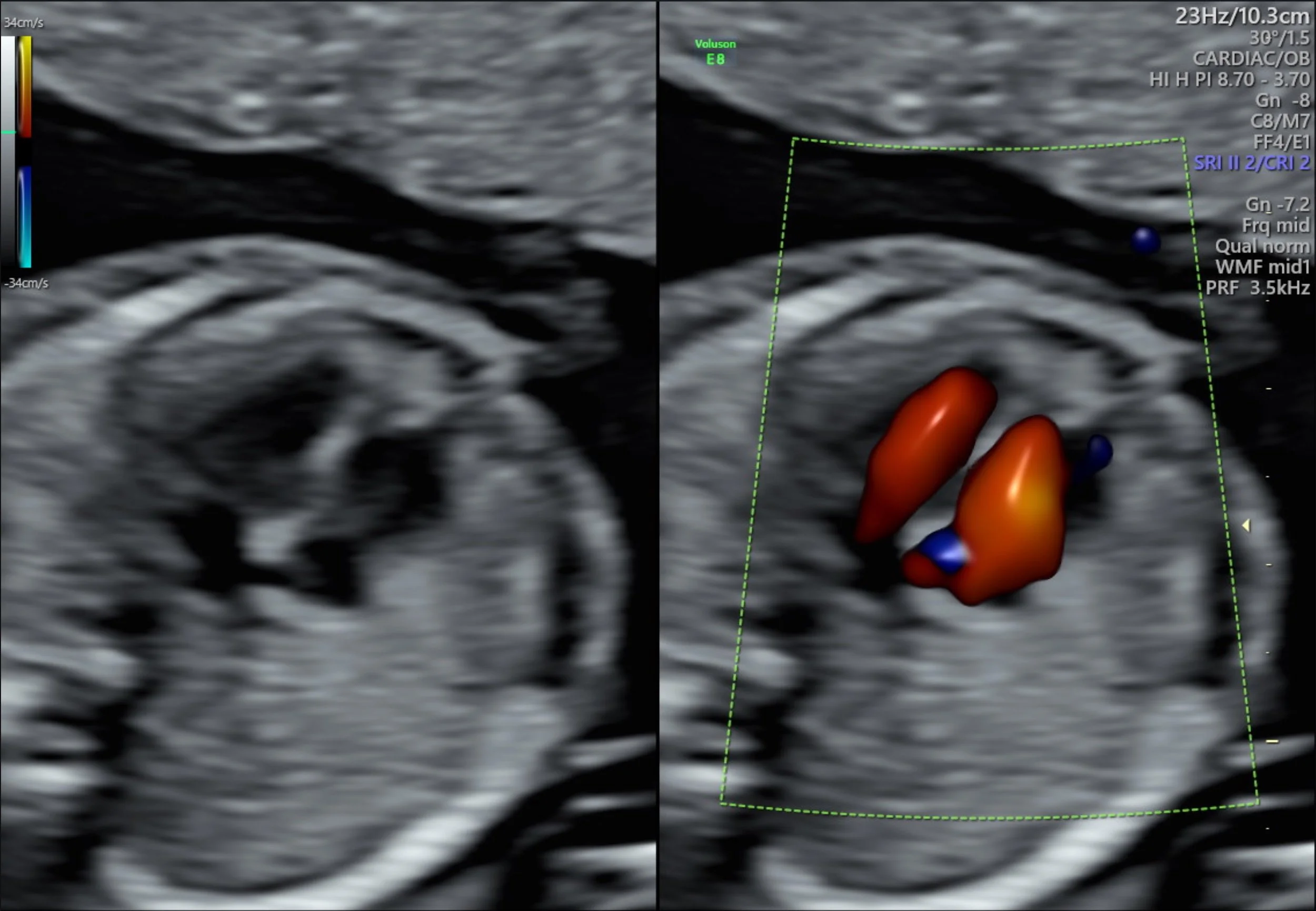
Early Anatomy Scans
From 16+ weeks
Early Anatomy Scans
An Early Anatomy Ultrasound examination is offered to most women from 16 weeks. This scan is often used to compliment an Noninvasive Prenatal Test (NIPT) blood test to detect fatal chromosomal abnormalities.
The purpose of the Early Anatomy examination is to:
Confirm the fetus is alive
Identify multiple pregnancy if no earlier scans were performed.
Confirm Estimted due date (EDD) if no earlier scans were performed.
Estimate and assess the fetus’ gestational age and early fetal growth by measuring the fetus’ head, abdomen, femur and humerus.
Perform a early detailed screening of the developmental anatomy of the fetus’ head, brain, face, palate, heart, diaphragm, lungs, kidneys, abdominal wall, bladder, spine, skin line, arms, hands, legs and feet.
Position of the placenta and umbilical cord insertions
Length of the cervix
Amniotic fluid
Pelvic anatomy i.e. fibroids and ovarian cysts
Measurement of the uterine arteries
The Early Anatomy Scan is expected to detect about 60-80% of fetal malformations. However, not all abnormalities can be detected despite diagnostic views.
Visualisation of the fetus’ anatomy maybe limited by the fetus’ position and movement. Maternal BMI is also a contributing factor as increased body fat significantly reduces the quality of the images.
During the scan, every attempt is made to move the fetus to obtain diagnostic images. Occasionally, we may have to ask you to return at a later date to complete the examination when the fetus is bigger and/or in a different, hopefully better position.
Some congenital heart defects, bone growth and bowel obstructions are progressive and unable to be detected at this stage. Also, biomechanical and some chromosomal abnormalities and cerebral palsy cannot be detected.
-
To acquire the best diagnostic images possible, the examination is routinely performed Transabdominally, followed by a Transvaginal ultrasound (always with your written consent first).
-
In most cases the examination will be performed transabdominally, but there are some situations where a Transvaginal ultrasound maybe necessary. This improves the assessment of the cervix, placenta and obtain better details of the fetus. In turn this can improve accuracy if the diagnosis.
Transabdominal and transvaginal ultrasound examinations are safe at all stages of pregnancy.
-
For the best results, we recommend scheduling your appointment as early in your pregnancy as possible to ensure that the procedure can be performed during the optimal timeframe. Use our Pregnancy Scan Calculator to determine the most suitable dates for your scan.
At Trinity Imaging we conducte Early Anatomy Scans from 16 weeks as our experienced sonographers have found that this specific timeframe allows for optimal visualization of your baby's development, including intricate structures such as the brain, heart, and kidneys. This small window of time can make a significant difference in the clarity and detail of the scan, providing valuable insights into your baby's well-being.
-
While a normal ultrasound can provide reassurance, it's important to note that it does not guarantee a normal baby. Although it can detect most major structural abnormalities, the overall detection rate is only around 60%. Therefore, while ultrasound is a valuable tool, it may not identify all potential issues, and additional screenings and tests may be necessary for a comprehensive assessment of the baby's health.
-
Although the scan is an important tool for early detection, it may not detect all potential issues. Some structural defects and abnormalities may only become apparent later in pregnancy.
Additional scans and tests may be required later in pregnancy to provide a thorough assessment.
It is advisable to undergo a scan at 20 weeks to assess morphology and placental location. This comprehensive approach helps ensure the well-being of both the mother and the baby.
-
The ultrasound procedure typically lasts around 50 minutes. However, the duration may vary depending on the specific reason for the examination and the complexity of the individual case.
-
If possible we recommend wearing comfortable, loose-fitting clothing that provides easy access to the area being imaged. Two-piece clothing, with separate upper and lower garments, is preferable.
Additionally, please ensure that you empty your bladder 1 hour before the procedure and then drink 2 glasses (600ml) of water, holding it without emptying your bladder again. Please note that your appointment might be delayed if your bladder is not adequately full.
-
Having some urine in your bladder can be beneficial for outlining the cervix and visualizing the relationship of the placenta with the lower uterus during imaging. It also helps to elevate the uterus from the pelvis into the abdomen, facilitating better visualization of the fetus.
You don't need to have a large amount of urine, and simply drinking a glass of water 30-60 minutes before your scheduled appointment is sufficient.
-
We welcome one adult support person, whether it be your partner or a family member, to accompany you during your Diagnostic scan. However, for specific reasons, we have implemented policies that prohibit children from attending Diagnostic ultrasound appointments. While we understand that this may be disappointing for families, it is essential to maintain a focused environment. Thus allowing the Sonographer to be able to concentrate during the scan whilst taking the necessary images and measurements. Occasionally, our sonographer may need to discuss unfortunate news found during your appointment and so this must be taken into consideration. The presence of children can introduce distractions that may impact the quality of the examination.
-
At Trinity Imaging, we provide our patients with their images to an app on your phone called Tricify. For further details please ask our receptionist at your appointment.

All our scans are performed in our premium-furnished luxury viewing room specially designed for you.
We are all looking forward to getting to know you, your baby and family along your pregnancy journey.
Our Early Anatomy Scans take up to 50 minutes and include:
2 x 3D thermal printed hard copy images
All pictures taken on the day straight to your mobile phone




